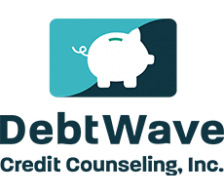How has your budget changed during the stay-at-home orders?
It’s a question many American consumers, myself included, have pondered ad-nauseum during the coronavirus quarantine.
At the beginning of California’s stay-at-home mandate, when everything except the gas station and grocery store closed, I actually felt like I was saving money. I live in an apartment with my husband and a one-year-old puppy in San Diego. My husband and I were lucky to not only keep our jobs, our income has not been reduced. We still have health insurance through my employer, continue to contribute to our respective 401(k) accounts, and banked sick leave and vacation should we need it for ourselves or take care of one another.
We hardly drive anywhere now, so we save money on gas. We use Instacart for our groceries – staples only – or walk a block to our local tiendita. So while there are some added fees and a tip to consider when ordering groceries from a delivery service, I considered this expense worth it, not just from a health standpoint. I had to work – I didn’t want to spend hours waiting in line to shop for groceries.
I wanted to comfort myself by shopping, but I was afraid to spend money. Businesses were closing like dominoes. I wasn’t confident if I would get the items I ordered anyway. There were so many order delays and shipping backlogs. And if you recall, back in March, early April 2020, there was uncertainty about how long the coronavirus could live on surfaces including cardboard, so our online purchases were few and far between.
Not only that, but several of our friends lost their jobs and I feared we would be next. Some of our friends moved back in with their parents, others found creative ways to earn money for the time being. Yet none of it was enough of a replacement for the lost income, the lost savings, the lost 401k contributions, and the high cost of health insurance.
We were in survival mode.
My only sense of comfort regarding my finances came from personal finance bloggers who shared they were frightened and unsure of their own financial future just as much as the rest of us. Their advice to focus on shelter, food, and medicine, above any other debt or expense, comforted me. Yet I was highly aware that my emergency fund looked nothing like theirs.
I knew I had to review my budget and see what adjustments could be made but I didn’t even know where to start. I saw someone recommend to stop 401k contributions and use that money to buy groceries or pay rent. Others stressed your 401k should be treated like your face during the coronavirus pandemic – don’t touch it.
There was so much advice and information swirling around. I didn’t know what the best thing to do was. More importantly, I didn’t know what the best thing to do for my personal situation with my finances.
How Has Your Budget Changed During COVID-19?
If you haven’t checked-in with your budget since the start of the pandemic, now would be a great time. Knowledge is power.
If you previously reviewed your budget since the start of the COVID-19 stay-at-home orders, consider reviewing your short and long-term goals and ensure your budget is leading you toward accomplishing those goals.
Not sure where to start? We outlined 5 budget adjustments to consider during COVID-19. Remember these are just considerations and may not apply to your family’s personal situation.
-
Income + Assets
-
Have you lost your job?
-
Have you been furloughed?
-
Have you had your hours reduced?
-
Have you had your income reduced?
If you answered yes to any of the above questions, you’ll need to adjust your budget. Remember, a budget is about more than what you’re spending money on or how much debt you have. A budget also considers your assets or income. If your income has been reduced or you’ve been negatively impacted financially because of the coronavirus, you’ll have to adjust your budget so you have a better idea of how much money is coming in.
Once we determine a new baseline household income, we have a better idea of whether we need to make any cuts to our spending in our budget. And if so, how dramatic those cuts may need to be.
-
Rank Importance of Bills
When times are tough, the basic necessities of food, water, shelter take priority over our other needs. The same thing is happening in a sense with our bills right now. While we’re not recommending anyone stop making payments on any bills you owe, when money is tight, it helps to rank which of our expenses are the most important.
Specifically, we want to:
-
Identify which utilities or expenses will hurt you and your family if they’re not paid.
-
Identify which utilities or expenses where payment can be put off.
For example, if not paying your Vinyl bill damages your credit score, but allows you to afford to pay your mortgage and feed your family, it’s worth having a conversation with the Vinyl company to see what kind of financial hardship arrangement, if any, can be worked out.
At the end of the day, most creditors and utility companies just want to know what they can expect from you. Take the time to contact any creditors, mortgage lenders, utility companies, or others you owe money to in order to work out a financial payback plan. It’s best to contact creditors and work out a plan before you default or miss a payment.
-
Cut Expenses, Remove Temptation
No one likes to cut expenses from their budget – especially when you’re forced to make budget cuts due to financial hardship. What items you decide to cut from your family’s personal budget is dependent on your personal financial situation. However, we have some suggestions on how to lessen your expenses during the coronavirus pandemic.
- Review New Offers: Some companies like Verizon and Comcast are offering internet packages and cell phone plans at reduced rates due to the coronavirus pandemic.
- Contact your provider to see if you qualify for a reduced price Internet or phone plan.
- Remove Temptation: Sales promotion emails are great at helping us spend money, especially spending more money than we intended. Unsubscribe from subscription emails and avoid temptation. Helpful tip: unroll.me makes this really easy to do.
- Un-Automate Payments: If you’re on a really tight budget due to COVID-19 or are cash-strapped, turn off automatic payments so you can have more control of when payments occur. This way your Netflix auto-payment doesn’t prevent you from affording items like food.
- Enroll in Bill Reminders: Now that automated payments are turned off, we’ll need a reminder so we don’t end up with late fees. By using bill reminders we can triage our payments due.
- Check for Zombie Charges: When is the last time you checked to see if you were still paying recurring subscription charges for things that you might not want or use anymore? Now would be a great time to add the extra money to your budget.
-
Shop Your Home:
You might be surprised at how much you already have in your house not just in terms of food, but also medications, entertainment, and more! Check your at-home inventory before you make any purchases.
- Groceries: To reduce food waste and keep grocery bills lower, focus on buying affordable, shelf-stable foods that won’t spoil like rice, pasta, and beans. Also, consider fresh foods that freeze well like bread and shredded cheese, and long-lasting produce like onions and carrots.
- Medications: Do you have cold and flu medications? Do you have an ample supply of prescription medications?
- Entertainment: What books and DVD’s do you have around the house? What arts and crafts supplies do you have on hand? Athletic equipment? Coloring books? Games and puzzles?
-
Use & Fund An Emergency Savings
Given that most school districts plan to resume virtual learning during the Fall 2020 semester, you may have to factor additional costs into your budgets such as the cost of a babysitter or increased childcare costs. It’s perfectly reasonable to use your emergency funds to make ends meet during the pandemic, especially for items or services you would not have otherwise needed.
Remember, this is what an emergency fund is for – your use.
On the flip side, if you do not have an emergency savings fund, don’t beat yourself up.
“Not only is that useless, because there’s nothing you can say to that … but it also makes you feel bad,” said Emily Guy Birken.
“Unless there’s a DeLorean nearby that can take you back in time and help you save money yesterday, there’s nothing you can do about it.”
If you have a reprieve on certain expenses (like spending less on gas because you’re working from home), use that savings to start or replenish your emergency savings fund. Even if it’s as little as $5 or $10, every little bit you can save adds up over time.
How has your budget changed during the coronavirus pandemic? What savings strategies have you used? Share your ideas and tips in the comments below.


